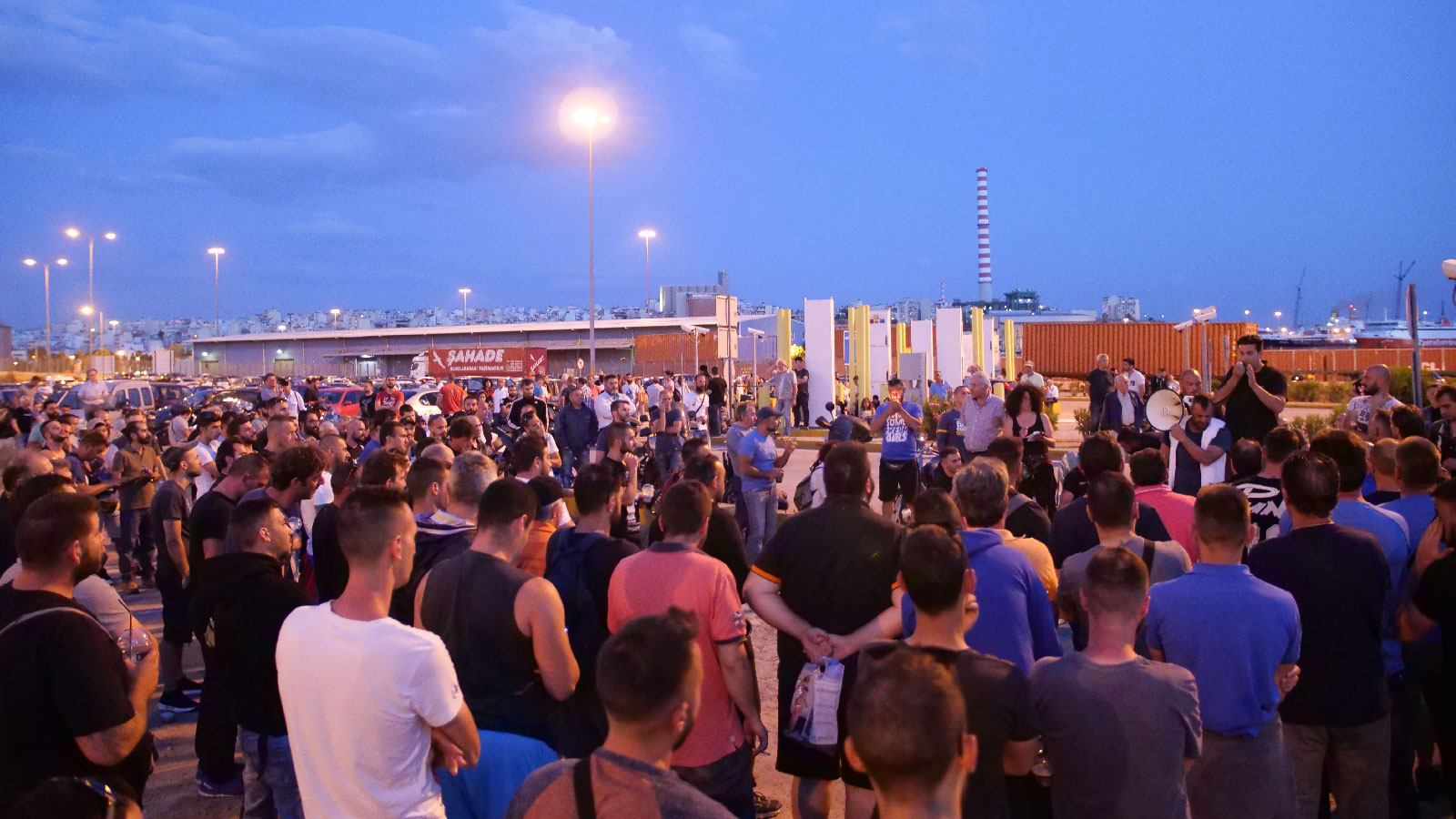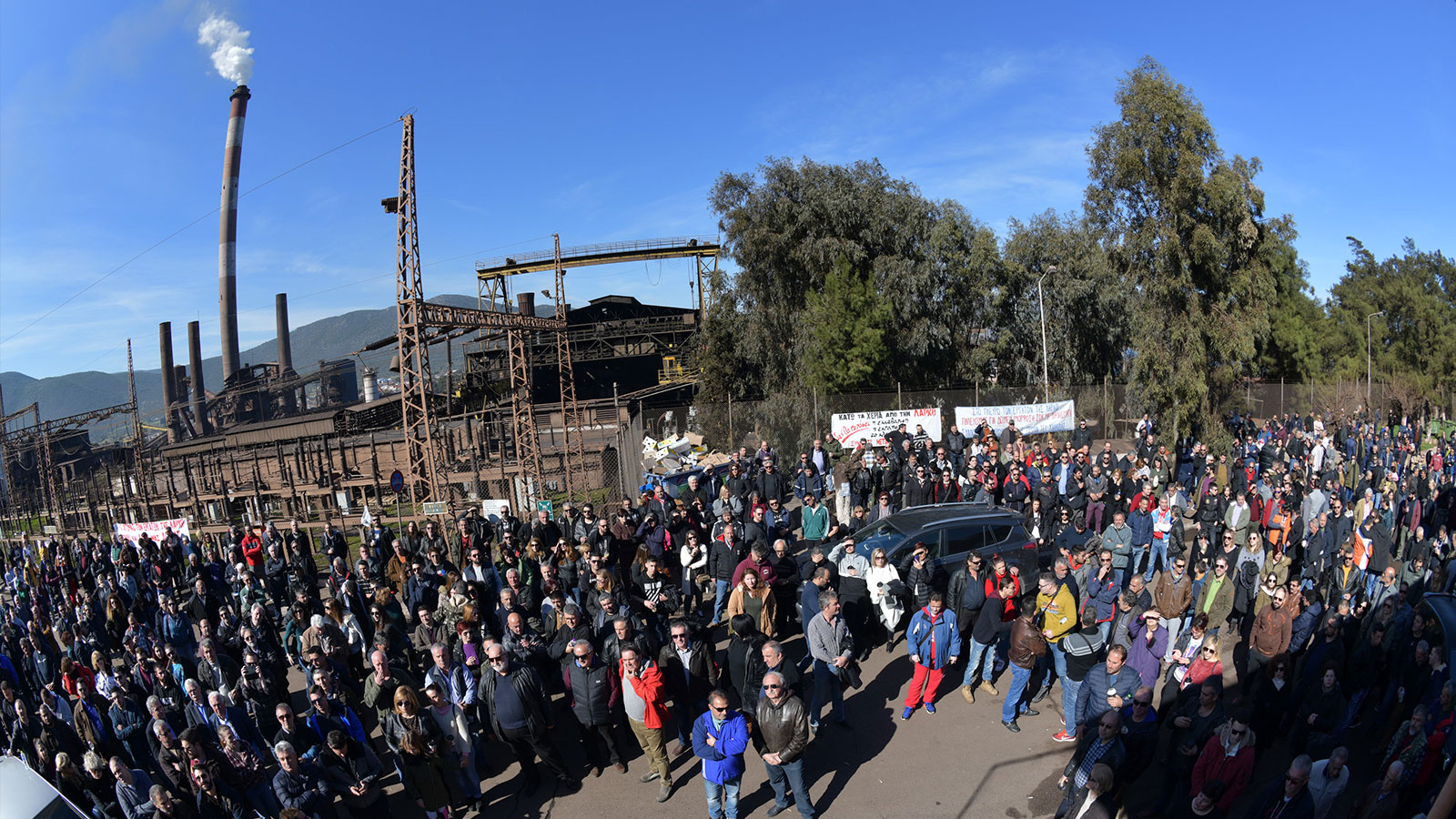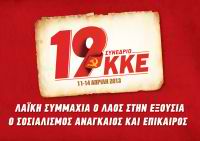Links to the old web pages of KKE
The importance of the work of the communists in changing the correlation of forces within trade unions and mass organizations
Article by the International Relations Section of the CC of the KKE
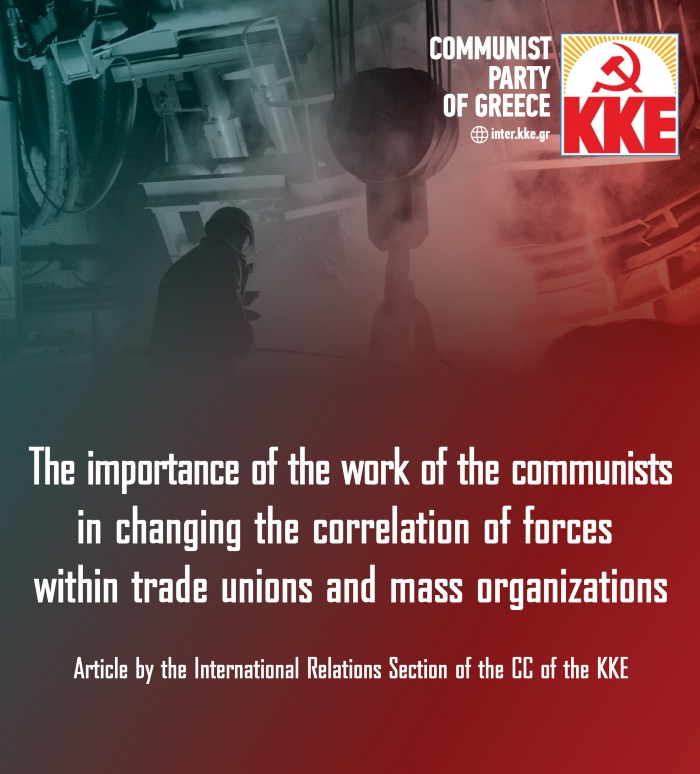
Communist Parties, Communist Youth Organizations and friends abroad who follow the developments in Greece and the activities of the KKE and the Communist Youth of Greece (KNE) are asking for information about the work of the communists in the labour and people’s movement.
Recently, the university student elections took place in Greece. For the fourth consecutive year, the list supported by the youth of the KKE, KNE, took first place, leaving the youth of the right-wing government party in second place again. Important results were also recorded in the elections for the leaderships in trade unions, federations and Labour Centres. Various friends and comrades abroad are asking: What does it mean in practice for the workers and youth of Greece that the KKE is strengthening its positions in areas such as the trade unions and university student unions?
This article by the International Relations Section of the CC of the KKE aims to shed light on this and other related issues.
A few words about the experience drawn from our historical roots
The Second Congress of the Communist International called on the then young Communist Parties to work to organize “all workers and exploited, who have been oppressed, beaten down, crushed, intimidated, dispersed, deceived by the class of capitalists”[1]. It underlined that the preparation of the dictatorship of the proletariat “must be begun immediately and in all places by means of the following methods, among others: – In every organization, union or association without exception beginning with the proletarian ones at first, and afterwards in all those of the non-proletarian workers and exploited masses (political, professional, military, co-operative, educational, sporting, etc.) must be formed groups or nuclei of Communists – mostly open ones, but also secret ones which become necessary in each case when the arrest or exile of their members or the dispersal of the organisation is threatened. These nuclei, in close contact with one another and with the Central Party, exchanging experiences, carrying on the work of propaganda, campaign, organization, adapting themselves to an the branches of social life, to all the various forms and subdivisions of the working masses, must systematically train themselves, the party, the class and the masses by such many-sided work. […] The masses must be approached with patience and caution, and with an understanding of the peculiarities, the special psychology of each layer or profession[2].
When explaining the relationship between communist parties and trade unions, Lenin states: “However, the development of the proletariat did not, and could not, proceed anywhere in the world otherwise than through the trade unions, through reciprocal action between them and the party of the working class[3]”. The economic and ideological–political struggle of the working class was linked together in an unbreakable whole by the CP.
This is all the more pertinent today when the material conditions for the transition to social ownership of the centralized means of production are more than ripe. In today’s monopoly capitalism, the contrast between the potential of contemporary scientific and technical achievements to satisfy social needs, and their failure to do so, is unprecedented. Objectively, the rapid sharpening of the basic contradiction of capitalism today means that the ideological and political struggle within the workers’ - trade union movement must deepen.
Lenin’s guidelines are well known: in many of his works he stresses that communists must work wherever the masses are —even in organizations with reactionary leaderships— in order to exert influence and promote revolutionary consciousness. In order for the working class to be able to consistently and effectively struggle for its economic demands —and, more importantly, to realize its ultimate goals— it must engage in a comprehensive ideological–political struggle, which only the CP can organize, orient and direct. This is achieved through the Party’s independent action, as well as through the action of its members within the trade union and the workers’ – people’s movement as a whole. This is a unique and irreplaceable role for CP members, irrespective of the structure or the correlation of forces within the workers’–people’s movement.

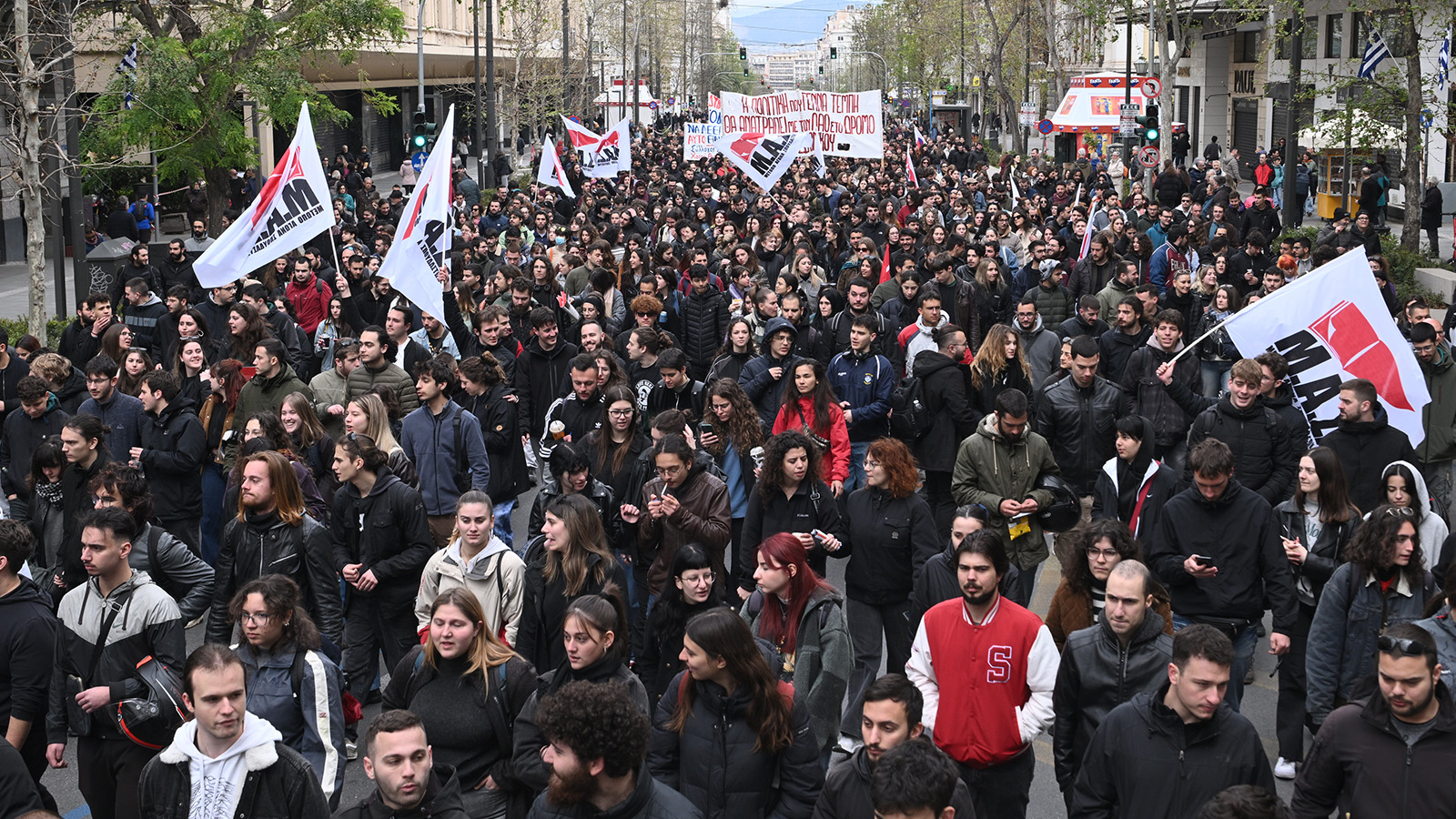
Some aspects of the experience of the struggle in Greece
Based on the obligations of the Statutes of the KKE, communists in Greece have to work within trade unions and mass organizations.
Unlike in other European countries, the workers’ trade unions, student unions and several mass organizations in Greece are not divided along political lines. This means that members of the same workers’ union or student association may be members, friends or voters of the KKE and KNE, as well as members, friends or voters of other political parties. Trade union leaderships are usually elected by separate lists compiled by the political forces and ideological currents represented within the trade unions. These lists are not identified with their political bodies. Members of the KKE and KNE therefore also form such lists with broader forces that do not agree with the communists on everything, but share a level of agreement regarding the content and orientation of the struggle against governments and employers in an anti-capitalist and anti-monopoly direction.
At the same time, a fierce ideological and political struggle is being waged within the mass of the workers, students and the popular strata, for the administration of these unions and mass organizations, in their general assemblies, concerning the framework of action and the demands that they will put forward. The communists who are active there aim to develop the struggle of the workers and the youth, so that it clashes with the political directions of the bourgeois parties, capital and the EU. The aim is to prevent anti-people measures and, if possible, to achieve some gains. Above all, however, the aim is to contribute to the political maturation of the workers’–people’s masses, and mobilize them against the class of the capitalists and their power, to overthrow the capitalist exploitative system and construct socialism.
In this regard, communists have recently led major strikes, such as of the workers at the LARCO nickel-producing factory, the Piraeus dockers (employed by the Chinese monopoly COSCO), the e-food food delivery platform workers and the metal workers in the Piraeus Shipbuilding and Repair Zone. There have been significant workers’ struggles and important strikes in various enterprises and sectors, resulting in notable achievements in collective labour agreements, including in the construction, metal, food and beverage, and chemical industries, as well as the financial sector.
At the same time, the KKE and the All Workers’ Militant Front (PAME) supported major strikes at the Halkidiki Mines, the Malamatina factory, the Kavala oil and the Kavala Fertilizers, where communists were in the minority in the administrations of these unions. In some cases, there were no organized communists at all. The influence of the KKE and PAME on the content and direction of the struggle, the organization of solidarity on a nationwide level and the positive outcomes of these struggles, strengthened the trust of broader working forces in the communists and helped to dispel prejudices among very conservative workers.
We believe that through trade union struggles, the CP promotes its ideological–political action, which must contribute to forming an anti-capitalist consciousness and the political awareness among workers’–people’s forces through their own experience. Workers’–people’s forces should realize, for example, that wage increases or the consistent defence of the right to social security, health and education implies conflict with capital, monopolies, imperialist unions and the parties and governments that serve them, either openly or covertly.
Needless to say, it is one thing when the class forces supported by communists hold a majority in the trade union leadership, and another when social democratic and right-wing forces hold a majority, striving for “peace in the workplace”, “consensus" and “social dialogue”. The situation is different when the administration of the sectoral federation or the Labour Centre (i.e. the federation of trade unions in a given region) is in the hands of the class forces supported by communists, as opposed to the bourgeois forces. If the class forces are in control, these administrations can be transformed into strongholds for the workers’–people’s struggles. However, if the bourgeois forces take control, they will silence the struggles or, worse still, implement anti-people and anti-labour methods in collaboration with the employers and the bourgeois government, whether liberal or social democratic.
It is no coincidence that bourgeois political forces, whether trade unions or student unions, seek to control the union leaderships through fraud. Nor is it by chance that the bourgeois media systematically seek to slander the workers’–people’s struggles, creating a climate of aversion among the workers and the youth towards mass organizations and collective struggle.
It goes without saying that the intervention of communists in the workers’–people’s movement is not limited to describing problems or promoting certain demands and proposals to address the problems faced by workers. Rather, it must reveal to the workers the mechanism of exploitation and oppose the actions of bourgeois forces and the employers, the social partnership, the "class cooperation", while educating the working class in the irreconcilable struggle with capital and formulating its demands to this end. Furthermore, it must take a firm stance against bourgeois management in all its forms, whether liberal or social democratic, and oppose the entire strategy of the bourgeoisie to increase its profitability. This includes opposition to the participation in the imperialist organisations of NATO and the EU, the involvement in the imperialist war, state violence and repression, etc.
We believe that only by taking such an orientation and action can we put the brakes on the attack of capital and its governments today, block anti-labour measures, achieve wage increases, Collective Agreements and the revocation of dismissals, etc., and help people realize the necessity of class struggle to overthrow the system of capitalist exploitation.
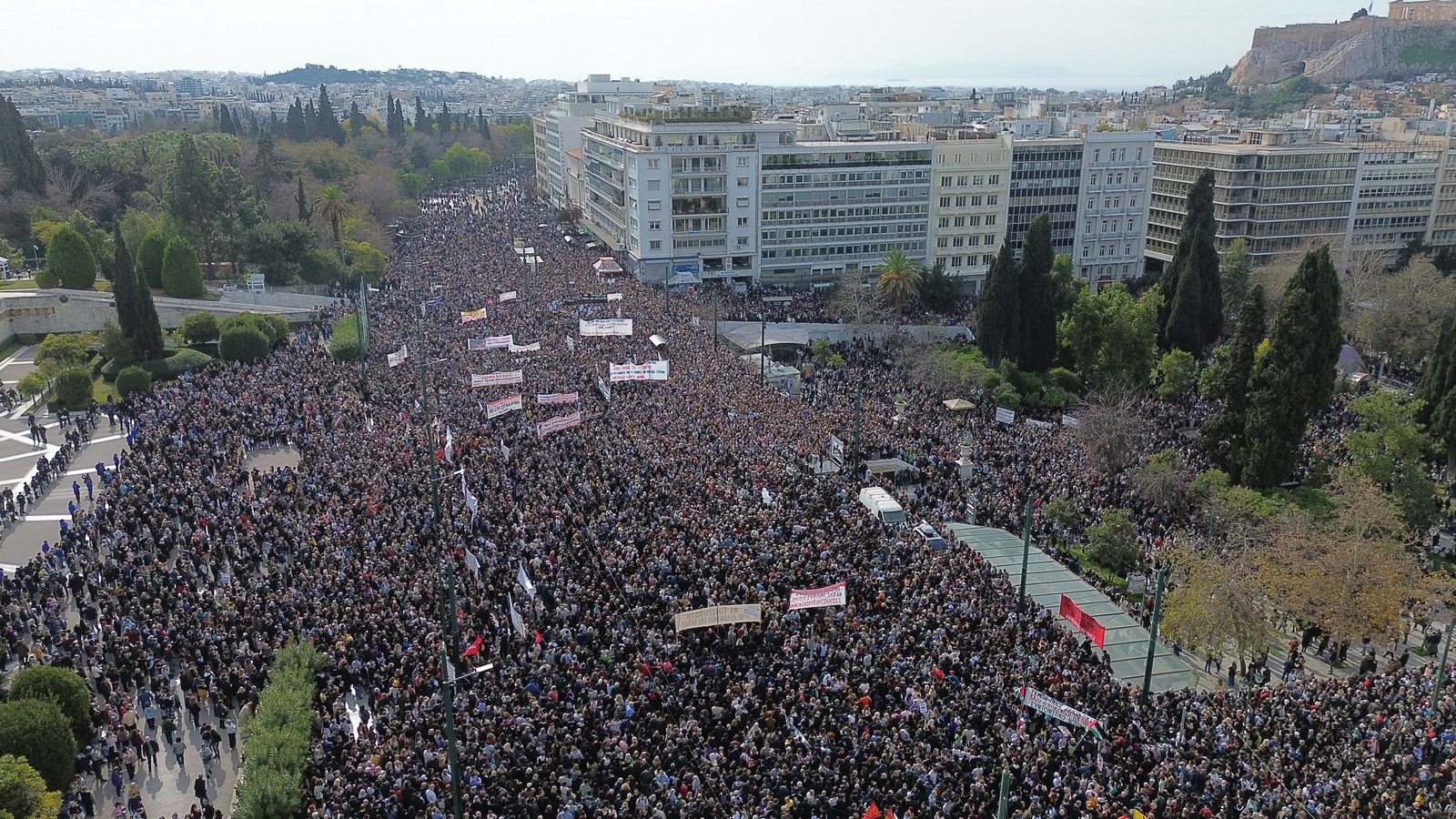
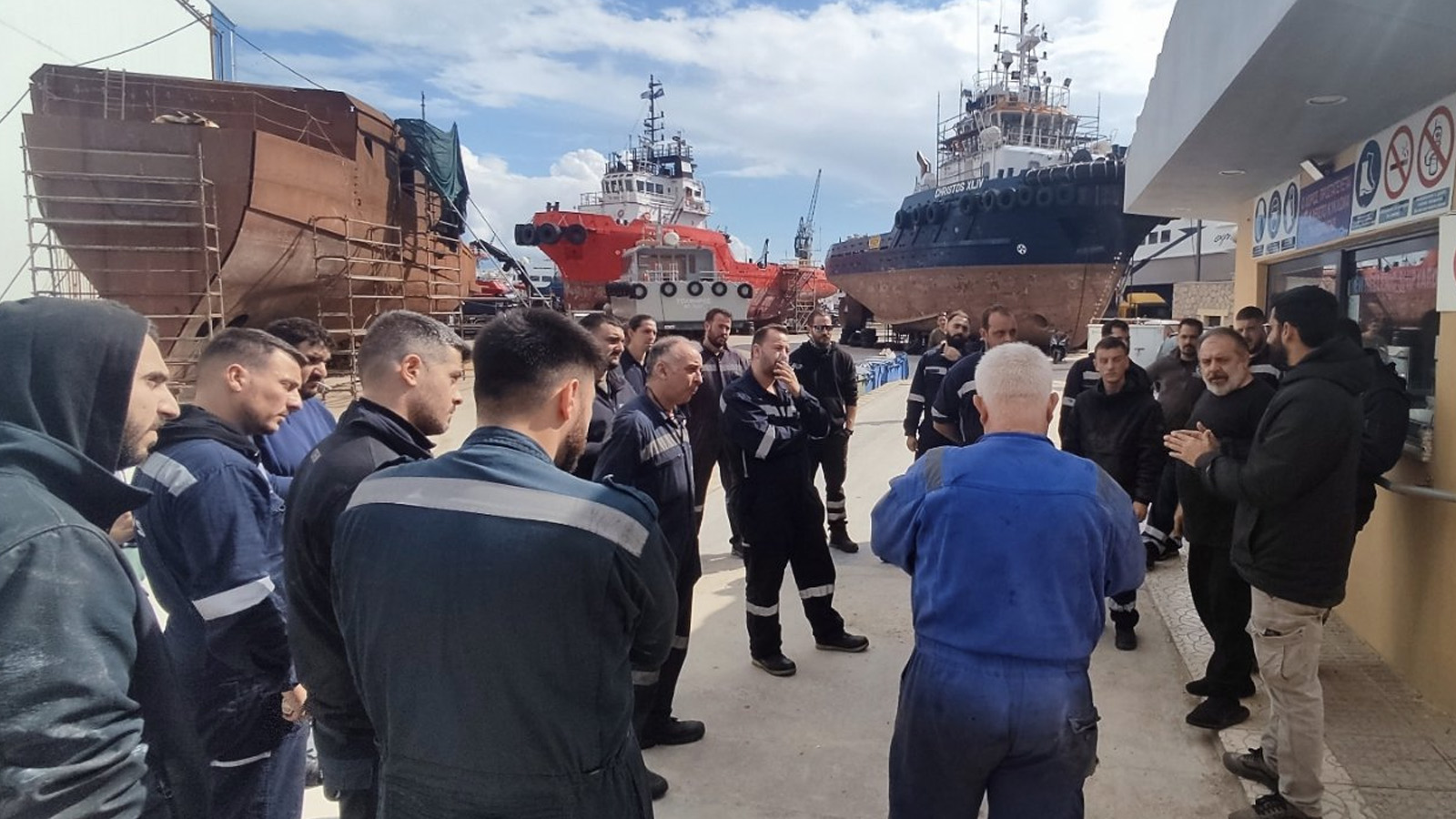
The action of the KKE to change the correlation of forces and increase active participation in the labour and people’s movement
At its Congresses, the KKE has taken on the fundamental task of regrouping the labour movement, preparing and developing its capacity to act with determination and effectiveness, in alliance with the popular sections of the urban and rural self-employed, against the unified strategy of capital and capitalist power. The party’s performance is assessed daily based on this task.
The action taken by the KKE meant that the retreat of the trade union movement, particularly following the counter-revolution of 1989–91, was not universal. The situation of the workers’–trade union movement in Europe and in other capitalist countries is even worse, and would have been the same in Greece if the KKE and its members, together with other militant trade unionists, had not formed the All Workers’ MIlitant Front (PAME). PAME rallies workers’ unions, sectoral federations, Labour Centres, struggle committees and trade unionists who struggle in a coordinated way, putting obstacles to the anti-people policies, forming a strong barrier against the full frontal attack of capital and the disorganization of the workers’–people’s movement. PAME works out a suitable framework for action with objectives of struggle and demands based on the needs of the workers.
On this basis, the KKE is taking the lead in trade unions and other mass organizations, building on its own valuable experience it has accumulated, as well as that of the experience of the international communist movement and its bonds with the people. Through persistent and tireless efforts, the KKE has played a decisive role in ensuring that a significant section of the working class resists bourgeois co-optation. It has upheld the value of collective struggle, organized forces, regrouped trade unions and mass organizations, taken the lead in establishing new ones, and educated a new generation of militants to fight against the capitalists, the state and its mechanisms, and their imperialist alliances.
Today, the KKE, better equipped with its collective elaborations and experience, is studying how the correlation of forces progresses in the labour movement and the broader people’s movement. It is decisively intervening to improve this correlation in favour of the class forces in order to defeat the bourgeois forces intervening in the movement and the government- and employer-led trade unionism. This effort by the KKE has yielded promising results in recent years. Such results include:
The list supported by the KKE emerged as the second force in both the General Confederation of Greek Workers (GSEE) and the corresponding public sector union (ADEDY), with 23% and 21.3% respectively. Class-oriented forces supported by the KKE hold a majority in 14 sectoral Federations (Construction, Food and Beverages, Pharmaceuticals, Private Employees and Shop Assistants, Teachers, Hospital Doctors, etc.), and are the leading force in 21 Labour Centres (Athens, Piraeus, Patras, Larissa, etc.) and hundreds of sectoral and company unions (Telecommunications/IT, Hospitality–Tourism, Trade, Metal Industry, etc.). Important recent examples include the success of the KKE-supported list in the Greek Primary Teachers’ Federation (DOE) — for the first time in its hundred-year history — and in the Athens and Piraeus Hospital Doctors’ Association, alongside the Federation of Greek Hospital Doctors’ Associations, which is also led by class-oriented forces.
The last Pan-Hellenic Conference of PAME, held in November 2024, was attended by 663 trade unions and struggle committees and over 1,500 unionists across the country.
In the youth movement, working with a similar orientation, KNE has emerged as the leading force in the student movement for four consecutive years, overturning a deep-rooted negative correlation of forces that had existed for decades. In the student elections held on 14 May 2025, the list supported by KNE secured a majority in 136 student unions across the country, winning 33.64% of the vote.
KNE forces emerged as the leading force in dozens of student unions, giving new impetus to important student mobilizations for public, free education and against the commercialization of education and the business-university model. Against the operation of private universities, in favour of increased state funding for the recruitment of professors and all necessary permanent and stable teaching staff. For classrooms, laboratories, and modern laboratory equipment, as well as other demands related to the struggle against our country’s involvement in imperialist wars and plans of NATO, etc.
In addition, the forces of the KKE and KNE develop appropriate and adaptive actions within hundreds of mass organizations in working-class and popular neighbourhoods and regions. These include women’s associations, school parents’ associations, cultural associations, sports clubs, etc.
The importance of the KKE’s work within the trade unions was recently demonstrated by the general strike called by 22 Sectoral Federations and 37 Labour Centres on 28 February 2025. The indignation and anger of the vast majority of workers and the people were expressed over the 2023 Tempi crime, when two trains collided on the same tracks due to the EU’s strategy to liberalize the railways and the policy to boost capital profits, resulting in the deaths of 57 people, mainly young people. This popular reaction found militant expression in this magnificent strike and the strike demonstrations organized throughout Greece, with the decisive contribution of the class forces supported by the KKE in the labour movement and the action of the communists, thus thwarting the attempt by the two third-level trade-union organizations of the country — the GSEE and the ADEDY — to prevent any strike.
The posts gained by the KKE within the labour and people’s movement empower the people to decisively intervene in developments. Millions of workers participated in the strike rallies under the slogan ‘Their profits or our lives,’ tackling both the New Democracy government’s attempts to terrorize the people and the attempts of social democracy and opportunism to co-opt the movement into channels that are harmless to the system.
It is also important to acknowledge the KKE;s and the class movement's struggles against the murderous state of Israel and the massacre in Palestine, and their solidarity with the heroic Palestinian people. The struggles against the unjust, imperialist war in Ukraine, where peoples are being killed for the interests of the monopolies, the control of markets and natural resources, the ongoing conflict with the government and the bourgeois parties that support Greece’s involvement in the war and the plans of the US, NATO, and the EU.
The experience of the KKE confirms that every step toward improving the correlation of forces in the labour and people’s movement, every seat won on the Executive Boards of trade unions and other mass organizations, every majority achieved, is a step towards the unionization and militancy of broader working class and popular forces. This enables us to cultivate disobedience to anti-popular measures and repressive laws more effectively and seriously hinders the government and employers’ promotion of ‘social consensus’ during major anti-labour reforms (e.g. the law abolishing the 8-hour workday and imposing 10- to 13-hour workdays under certain conditions, the law on 6- and 7-day workweeks, the laws on state control of wages, etc.). Over the last four years, on the initiative of PAME, three nationwide general strikes have been organized — without the GSEE’s involvement — continuing to organise disobedience and conflict with the dominant policy that developed during the pandemic. This work has significantly influenced broader sections of our people, extending well beyond the electoral reach of the KKE. Our opponent is well aware of this fact, and for this reason, they are strengthening the anti-labour and repressive legislative framework, organising slander and attacks against the KKE and PAME.
It opens up new paths for communists to develop enlightenment and forge broader militant and ideological-political bonds with the people. It creates new opportunities for party building, enabling the development of robust party organizations in workplaces of crucial importance and in working-class and popular neighbourhoods.
The work of the KKE in the movement of poor small farmers in rural areas, as well as among the self-employed and small business owners in the cities, is particularly important since they are the ‘natural’ allies of the working class in the struggle against capital and the monopolies. Strengthening the joint action of the labour movement with the farmers’ and self-employed movement in order to form the Social Alliance is a complex and demanding task.
Of course, the KKE recognizes that unionization among the working class and the people in general remains very low. The KKE considers it its own independent task to raise the level of unionization, revitalize the unions and other mass organizations, and make them even more mass. It works to ensure that unions and mass organizations engage in multifaceted action that responds to the overall needs of popular families, combats guild narrowness and coordinates the struggle.
The increase in unionization among the working class is the result of many different factors, with the Party’s intervention being of decisive importance. A lack of unionization and absence from the struggle breeds defeatism, whereas participation creates conditions that allow militant experience to be pooled and leveraged, and self-confidence to be built up. Nevertheless, we recognize the objective factors that have led to some sections of the working class becoming alienated from unionization and class-oriented action. These factors include, among others, flexible employment relations and the high mobility of young workers. We oppose capital’s attempts to further undermine the role of trade unions as a form of organization of the working class. As we constantly confront the negative correlation of forces and the pressure towards co-optation, raising the bar for the effectiveness of our action is a sign of the KKE’s strengthening. In the face of new and more challenging conditions in the class struggle, we examine both the objective factors and the subjective weaknesses, of whether and how we exhaust the potential of the Party’s own action.
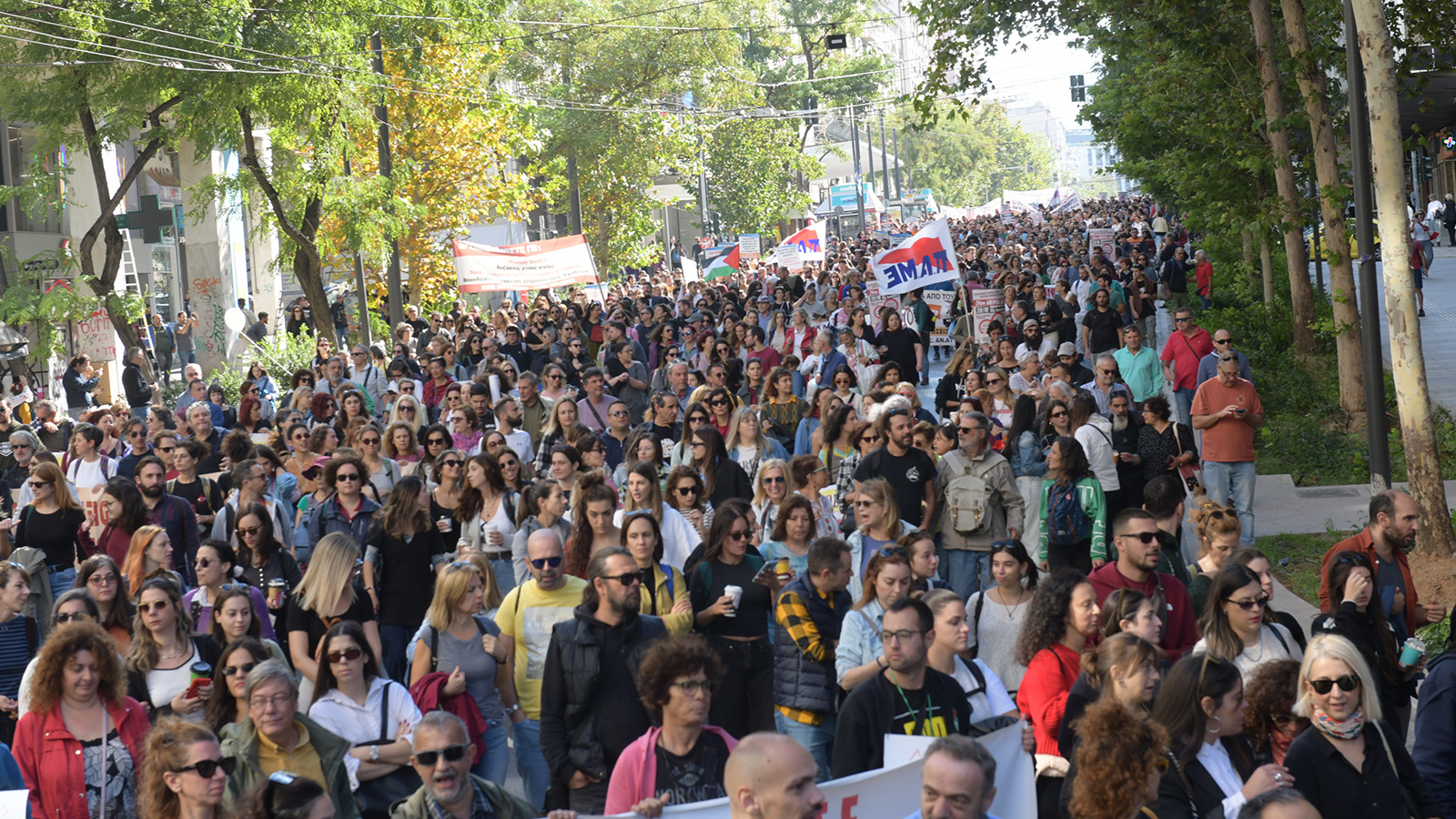
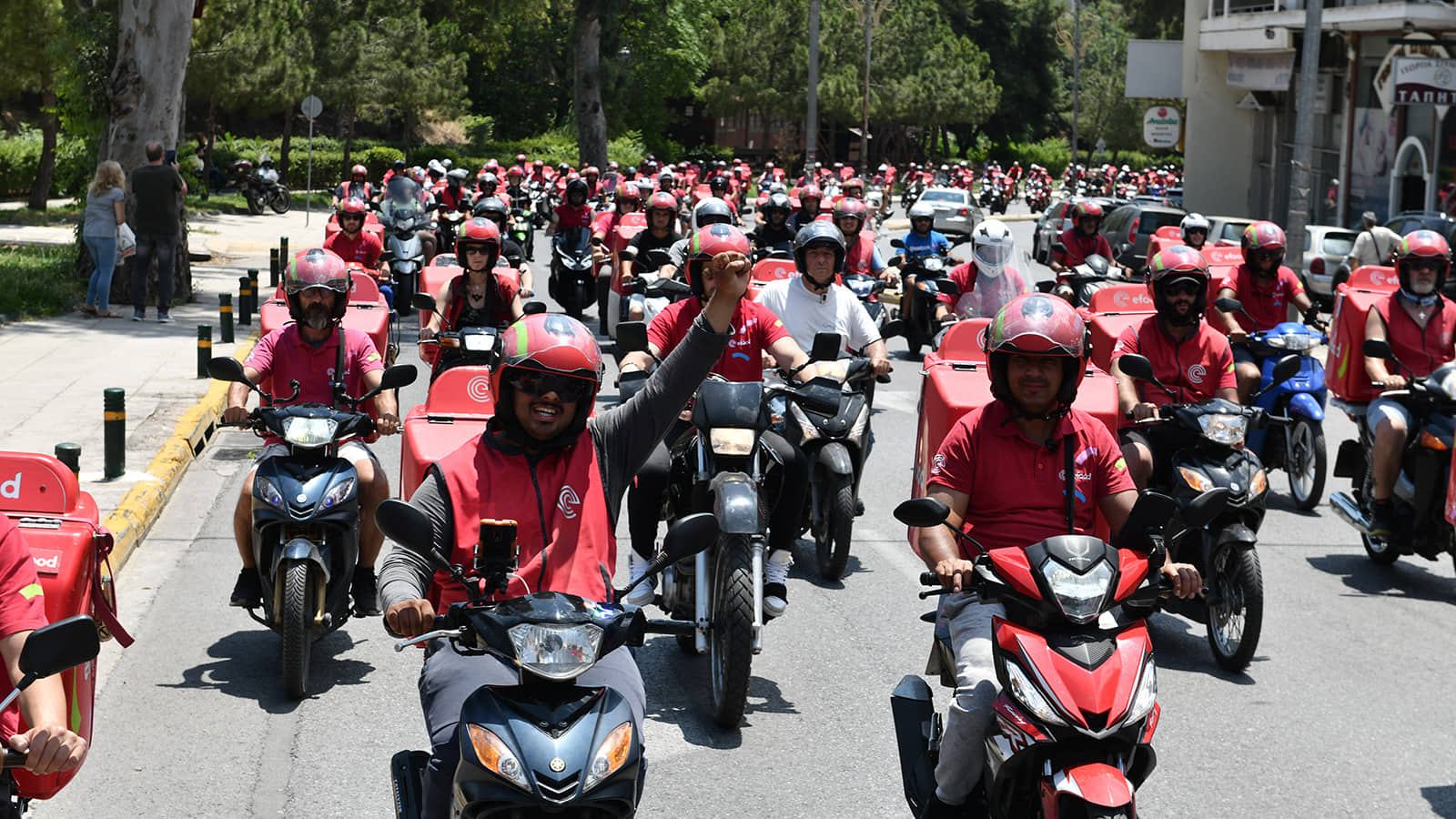
All-round preparation of the subjective factor
The Programme of the KKE stresses that the activity of the Party under non-revolutionary conditions decisively contributes to the preparation of the subjective factor — the Party, the working class, and its alliances — for the revolutionary conditions and the realization of its strategic tasks. It is highlighted that the attraction of vanguard sections of the working class and the mobilization of its majority with the KKE will go through various phases. The labour movement, the movements of urban self-employed and farmers, and the form of expression of their alliance with anti-capitalist and anti-monopoly goals, through the vanguard action of the KKE forces under non-revolutionary conditions, constitute the first form of the workers’–people’s front in revolutionary conditions.
The KKE has a clear view that the subjective preconditions for the working class and its allies to achieve victory under conditions of a crisis in bourgeois power and its institutions are formed in advance. Historical experience has shown that the emergence of revolutionary conditions alone is insufficient. The development of conditions for attracting the masses in a revolutionary direction will be determined by the activity of the Communist Party long before, under non-revolutionary conditions. A fundamental prerequisite is organizing the working class and popular forces in a line of struggle against capital, the monopolies, the governments, and their imperialist alliances.
All efforts to improve the correlation of forces within the labour and people’s movements, and to increase organization among the working and popular classes, are subordinate to this crucial task. In any case, it is clear that higher-level ideological, political and organizational work is needed within the Party, as well as the continuous elaboration of the ideological and political struggle within the ranks of the movement against bourgeois political forces, employers, the state and the overall strategy of capital, as well as against opportunism. As ideological and political work intensifies and communists are able to specialize within the movement in each area and sector, the unionization, rallying and enlightenment of workers can be promoted. This will also increase the KKE’s political influence within the working class, which is a decisive factor in radicalizing consciousness. It will encourage class political action by workers and raise the question of radical overthrows at the level of power.
[1] “The Communist International. Theses and Statutes as voted in at the Second Congress (6 – 25 July 1920)”, p. 54, SynchronI Epochi.
[2] Ibid. pp. 54 – 55.
[3] V.I. Lenin, Collected Works, Volume 41, pp. 33 – 34, Synchroni Epochi.
